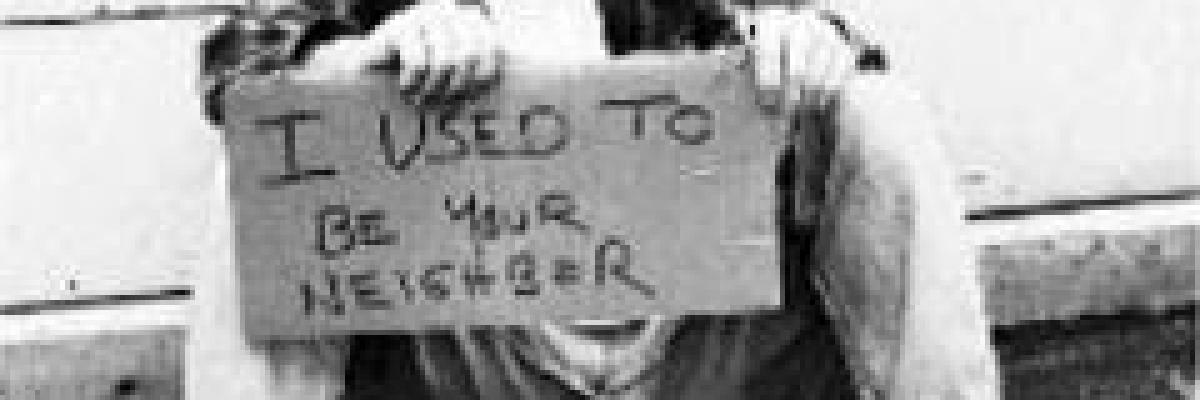When Jesus was asked “who is my neighbor?” he told the parable of the Good Samaritan. A nice story on its surface about good people doing good things for others, the parable reveals an alarming challenge to those that take it in: prejudice blinds us. We are called in this parable to recognize in a person we think most alien or adversarial to us, that same humanity and likeness that we find in our closest friends. Jesus calls us to see all humans as God sees humans—a single community that was created in his likeness.
It is easy to distance ourselves from those we think unlike us. And yet, in the faces of the poor, the teen, the relative, the coworker, and the neighbor, Christ’s own likeness is cast. God revealed himself to us in his Son, who was born a human, and lived a human life. And throughout our world, we can continue to see him appearing in human form—in our life with others. The God that is with us gives us pause one person could be a friend, and another a stranger when all share humanity and God’s likeness. I wonder how our distinctions of friend or foe, neighbor or pariah can continue to exist, when we have heard that all are one in Christ. The truth is, like the parables Jesus told, the gospel challenges and changes our perceptions, and we are made to see the reality of the world, through God’s eyes.
This last year, perceptions of who is friend or foe, neighbor or pariah have been blurred or exacerbated. Recently, attention and action regarding those living on the streets of San Diego has increased dramatically, as has the population of those affected by unemployment, hunger, and increased housing costs. Many in search of a solution have become discouraged by the enormity of need. An outbreak of Hepatitis-A last year has made many more fearful about the presence of transients and homeless persons, furthering the divide between those who live indoors and “out-siders.” The needs we share for hope, direction, and community are great. But the work already being done in our community is a source for hope. God’s visions of neighbor and loving community give us pause, and language to reflect on our relationship with all of God’s people, especially the most vulnerable in our communities.

